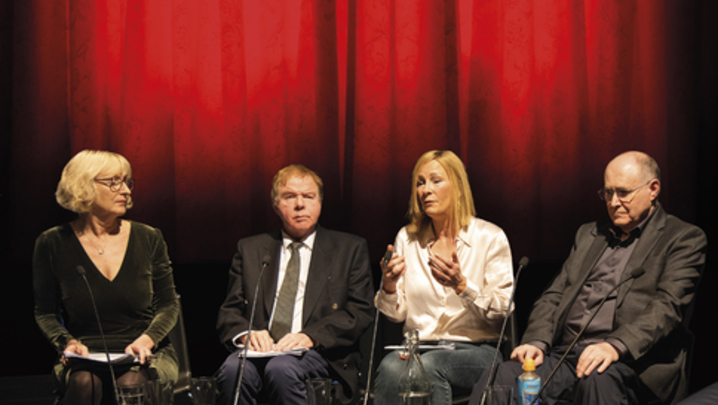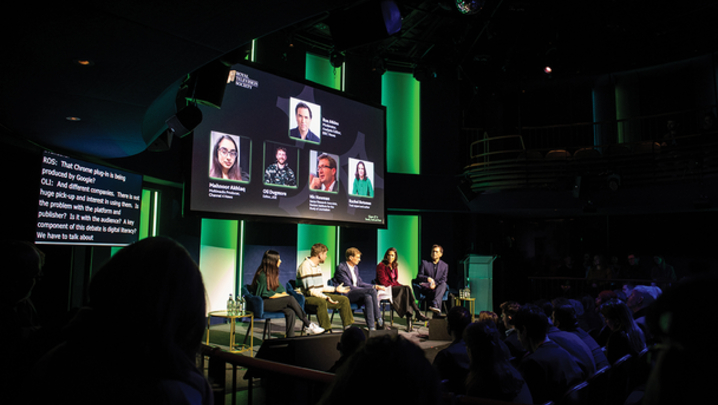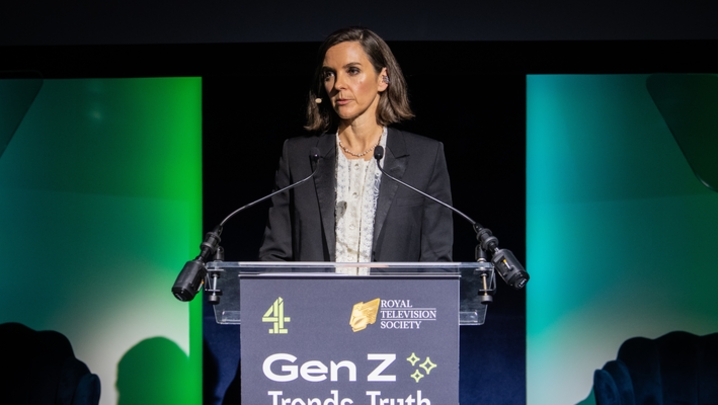Matthew Bell weighs the evidence for why this documentary genre is more popular than ever in the UK.
The country is in the grip of an escalating crime wave, yet the public can’t get enough of it. Viewers used to get their vicarious thrills from fictional detective drama – now we are becoming fixated on real-life serial killers and violent psychopaths.
This autumn, True Crime on Channel 4 is set to join the Channel 4 family – and go up against two existing bespoke true-crime channels, A+E Networks UK’s Crime + Investigation and Sky Crime.
The new streaming service promises fresh home-grown series, programmes from the All 4 catalogue and acquisitions, including Surviving Jeffrey Epstein and I, Sniper: The Washington Killers.
Channel 4 head of factual Danny Horan says that, “year on year, the quality [of programmes] rises, as does the appetite for more stories, particularly with younger audiences”.
One new commission, Bling Ring, recounts how a wave of burglaries hit the homes of LA celebs such as Paris Hilton and Orlando Bloom. It is squarely aimed at younger viewers, who lap up true-crime TV and podcasts.
Channel 4 commissioning editor Jonah Weston says: “This is a classic ‘only in Hollywood’ tale, and I think audiences will love the mix of celebrity and social media.”
On its launch in October 2019, Sky Crime promised a roster of US and UK series that would take the viewer from “savage serial killers, unexplained disappearances and love stories gone sour [to] some of the most harrowing, chilling and heartbreaking crimes”.
For viewers who prefer their true crime dramatised, ITV continues to make outstanding factual dramas. In just two years, it has offered a Hammer House of Horror: Des, featuring David Tennant’s chilling portrayal of serial killer Dennis Nilsen; The Pembrokeshire Murders; White House Farm, about convicted murderer Jeremy Bamber; and A Confession, starring Martin Freeman as DS Steve Fulcher on the trail of Christopher Halliwell.
This autumn, Manhunt returns to ITV, with Martin Clunes as real-life cop DCI Colin Sutton pursuing a serial rapist of elderly women. The broadcaster is also offering Stephen, a sequel to Paul Greengrass’s 1999 drama The Murder of Stephen Lawrence, starring Sharlene Whyte and Hugh Quarshie as Doreen and Neville Lawrence, and Steve Coogan as DCI Clive Driscoll.
Jeff Pope, who wrote A Confession and is an executive producer of BBC One’s upcoming Jimmy Savile factual drama, explained the pull of true crime on him at an RTS event: “If drama is about conflict, which it is, you’re looking for the extremes of conflict. Those areas are love, hate and, I would argue, crime. I am not a depressive person or ghoulish but it’s the old journalist in me – there’s a good story in it.”
But what attracts audiences? Whether in newspapers, books or detective series, crime has long been the Brits’ staple fiction. George Orwell, in Decline of the English Murder, noted the public’s insatiable thirst for voyeuristic murder reports in the tabloids. Agatha Christie is reckoned to have sold two billion copies of her works, and many of TV’s most-watched dramas, from Z Cars to Line of Duty, pit cops against robbers.
Now we find ourselves in the golden age of the TV crime documentary. “The appetite for true crime is strato-spheric,” says Dan Korn, VP of programming at A+E Networks UK, whose channels include Crime + Investigation, which turned 15 in July. The popularity of TV detective drama feeds into true crime, says Korn, who highlights the “immediacy and accessibility of crime – every day, it is in the news”.
True crime may be attracting more younger viewers, but on Crime + Investigation and elsewhere, women – in particular, “women in their forties”, he says – are its core audience. “A lot of the victims are women… and there is this identification and affinity with the perils that women experience in society.”
He adds: “For some women, and this is not to trivialise it, crime stories have a bit of a soap-opera quality to them. Some of the titles, Nightmare Next Door or Women Who Kill, have a tabloidesque or soap-opera aspect.”
The big streamers, particularly Netflix with its Emmy award-winning Making a Murderer focused on US killer Steven Avery, have revolutionised true crime. “They’re so well made and glossy, I think people almost think they are drama rather than real life,” says Korn.
Arrow Pictures creative director John Smithson argues that “audiences want detail and, if something draws them in, the ability to binge view”. With his track record – he produced Bafta-winning docu-drama Touching the Void, as well as many crime docs – few people are as well qualified in the field as Smithson. “We’re in a race to the top, [striving for] originality and quality, and with the money to do it. There are now equal levels of ambition and creativity, whether it’s scripted or non-scripted.”
Of course, the genre can sometimes plumb the depths of taste. “Particularly with American content, one has to be careful that it’s not just lurid, salacious, tabloid stuff,” says Korn.
He argues that the sustainability of the true-crime boom “depends on everybody being respectful and careful, and doing it for the right reasons – not dwelling on the salacious but looking at what you can bring journalistically that is new”.
Staleness, too, is a risk: “It’s incumbent on everyone in the space to be saying something different and to cover [different] crimes…. Levi Bellfield [the serial killer] is a classic case in point – he’s been covered and covered.
“I don’t want to be over-pious but, as long as everyone is in it for the right reasons, doing the right kind of content, I see no reason why true crime shouldn’t sustain for some time to come.”
Inside the mind of a mass murderer
Over three weeks in October 2002, former US soldier John Muhammad and young Jamaican Lee Malvo, the so-called ‘DC Snipers’, carried out a series of attacks in and around Washington DC. This was the culmination of an indiscriminate shooting spree that began months earlier and, in total, took the lives of 17 people. Muhammad was executed, while Malvo is serving multiple life sentences.
A new six-part documentary from UK factual indie Arrow Pictures, I, Sniper: The Washington Killers, is the centrepiece of the launch of True Crime on Channel 4. The series, which features remarkable access to Malvo in prison, was 15 years in gestation and took four years make.
New York-based British producer Mary-Jane Mitchell had made a documentary for Channel 4, Hunting the Washington Sniper, in the wake of the shootings and remained in contact with Malvo. ‘She built up trust and ultimately was able to go on his phone list,’ explains Arrow Pictures creative director John Smithson.
‘Five years ago, Mary-Jane and I talked about trying to tell the story of this iconic crime. We weren’t seeking to exonerate [Malvo] – there’s no question of his guilt – but we were seeking to understand him. We felt this was a unique opportunity to use his voice from all the audio accumulated over years of calls [to the prison].’
Smithson says Malvo is ‘intelligent and lucid’, and able to offer ‘a real insight’ into the shootings. ‘We look at his background as a kid in Jamaica, trying to understand how a 16- to 17-year-old fell under the influence of this older man, the ex-Gulf War veteran John Muhammad.’
Until recently, I, Sniper would have been, at most, a full-length doc, assembled from archive and interviews with police and the victims’ families. But true crime – in the wake of landmark series such as Making a Murderer and HBO’s The Jinx: The Life and Deaths of Robert Durst – is increasingly made at multi-episodic drama length.
‘The bar has gone higher and higher and higher. You can now do just one crime story over six hours,’ says Smithson. ‘People were prepared to pay proper money, and that enabled us to do the research, accumulate material and find the key people – and gave us the time to shoot and edit it with classy directors and editors.…
‘I, Sniper was an incredibly complex and challenging production but, ultimately, it has been very rewarding as a creative exercise.’







